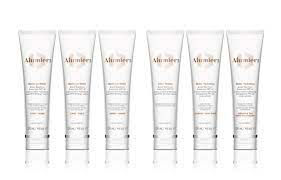
Understanding Skin Damage and How to Protect Your Skin
We know that the sun can be quite damaging to your skin due to its ultraviolet (UV) rays. There are two main types of UV rays that cause skin damage: UVA and UVB. Let's explore what these rays do and how you can protect yourself.
Effects of UVA and UVB Rays
UVA Rays:
These rays go deep into the skin, reaching the dermis layer.
They are mainly responsible for premature aging, like fine lines, wrinkles, and age spots.
UVA rays are present all day and can penetrate through clouds and glass. There's a well-known case of a truck driver who had more sun damage on one side of his face because of UVA exposure through the window.
UVB Rays:
UVB rays affect the outer skin layer, the epidermis.
They are the main cause of sunburn and play a major role in skin cancer development.
UVB rays are strongest during peak sunlight hours (11am - 3pm).
Sun Protection Tips
We use AlumierMD for sunscreen to help damaged skin. We also offer a skincare consultation with our skincare expert.
Use a broad-spectrum sunscreen that protects against both UVA and UVB rays. An SPF of at least 30 is recommended, but SPF 50 is ideal.
Apply sunscreen daily, even in winter, as the last step in your skincare routine before makeup.
Use the right amount: Two finger lengths for the face and neck, and two tablespoons for the rest of the body.
Avoid the sun during peak hours and wear protective clothing, hats, and sunglasses.
Regularly check your skin for changes or new spots and consult a healthcare professional for a skin check-up if needed.
Types of Sunscreens

AlumierMD offer 'broad spectrum' sunscreens and also matte sunscreens to avoid that super shiney look. Sunscreens that go beyond the science of skin defense. Unlock smooth, hydrated, and radiant skin daily with a broad-spectrum sunscreen you can’t wait to apply. Our hybrid sunscreen formulas feature our triple defense approach to the longevity of skin health. Newly formulated to physically shield the skin from particulate matter from pollution and the damaging effects of HEV and IR.
Get to know the terms for sunscreens and what they do.
Chemical Sunscreen:
Contains chemical compounds that absorb UV rays and convert them into heat, which is released from the skin.
Often lighter and more transparent, making it good for use under makeup.
However, it may irritate sensitive skin and can harm coral reefs.
Mechanical Sunscreen (Physical/Mineral Sunscreen):
Contains zinc oxide or titanium dioxide, which create a barrier on the skin to reflect UV rays.
Gentle on sensitive skin, making it suitable for those with conditions like rosacea, eczema, or allergies.
Provides immediate protection and is safe for small children and pregnant women.
Can be thicker and harder to blend under makeup.
Choosing the Right Sunscreen
To minimize sun damage and aging, it's essential to use sunscreen year-round. When selecting a sunscreen, consider the patient’s skin type, any sensitivities, and personal preferences. By understanding the different options and offering tailored advice, healthcare providers can help patients find a product they'll use consistently, ensuring effective sun protection.
We can help with skincare with medical grade skin products from AlumierMD and Decaar (vegan). Decaar is perfect for sensitive skin. Book for a consultation.

Comentários